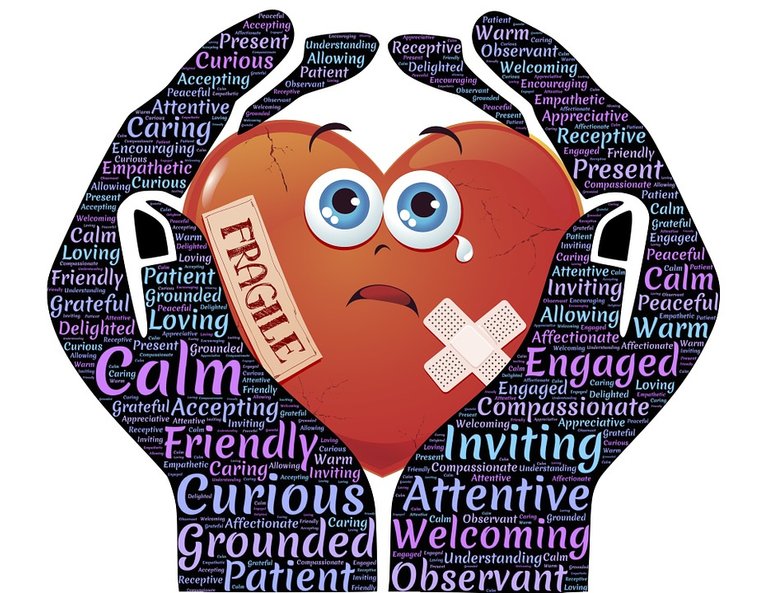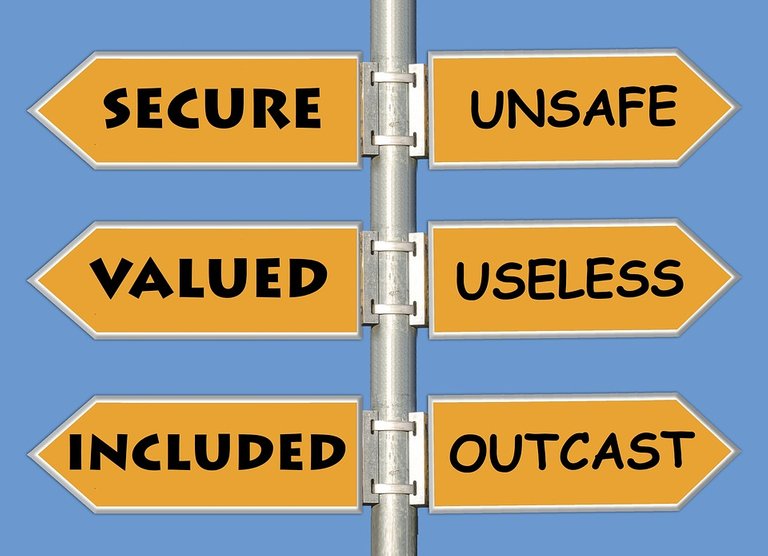Everyone is inclined to be considered a person with special sensitivity. It's even annoyingly full of people who think of it. When I first came across information about HIGHLY SENSITIVE PEOPLE, I was slightly suspicious because I've met enough individuals who like to manipulate others with "I'm very sensitive," while they’re not. So if you fall into this group, PLEASE DO NOT READ this article. It's for those who:
• Are strongly influenced by the environment in which they live. Much stronger than others.
• Feel how people feel around them and strive to do something to restore comfort.
• They prefer a more relaxed, non-chaotic environment.
• When they were young, they were defined by people as shy.

If you find yourself in these definitions - you are probably a highly sensitive type. This is a personality introduced as a highly sensitive person (HSP) in modern psychology by Elain N. Aron in 1990. For more information and a detailed test, see this link: The Highly Sensitive Person.
This woman has so far been engaged in researching the topic of the highly sensitive people and even managed to make two interesting documentaries that you can find in the link above. I will list a few more features of the highly sensitive type, referring to her discoveries and comments from people with such ... to call it a syndrome.
Highly Sensitive People (HSP):
• Often hear the words "Do not take it so inward!" or "Why the hell are you so sensitive!" which is a big problem for them because it’s not possible just to change your sensitivity.
• They perceive the world primarily through their emotions and react strongly emotionally.
• They feel overwhelmed and easily exhausted.
• Extremely sensitive to places and events. For this reason, if they fall into an aggressive environment, they can be totally frustrated and confused.
• They are able to walk a mile in someone’s shoes instantly and without asking them (don’t confuse this with empathy).
• They have deeper feelings.
• Making decisions takes time.
• They get confused when it's very noisy.
• Difficult to overcome their own "wrong decisions".
• They love details.
• Not always introverts. They can also be extroverts.
• They are prone to depression and anxiety.
• Minority (according to Elaine Aron's research they are about 20% of the world's population)
• They can’t stand criticism and constantly create situations to avoid it.
• Can’t tolerate violence.

These are some of the key features of HSP, but the most important thing is the discovery that their nervous system functions differently. I will not apply the complex terminology of psychologists to a "process of perception". But it is proven that the high sensitivity of such people makes them feel many things at the same time. This in turn gives signals to the brain for anxiety. It is also very important for them to stop for a moment and calm down. They need a little more time to process the large amount of information they receive as they are experiencing everything while accepting it. I personally understand it as a higher intensity of the experience.
It looks like "high tension" and for this reason I like the translation of "highly sensitive person". Despite my skepticism, finding information on the subject became a discovery for me, related to reading vast amounts of information.
I write this material mostly for those who will find the soothing confirmation "I'm not crazy" in it. For those who, in excitement, no matter how positive or negative, are getting up and going for a walk. Don’t call a friend to flood him with his feelings. Don’t write a status on Facebook, or whichever social media they're using. They don’t want to burden anyone with themselves. For those who don’t know exactly what they are thinking at the moment of affection simply because they feel much more at this point than they think. For those who, at the most intense moments, want to jump in a hole or just close the curtains for five minutes. And then everything will be fine - they will know what they think, what they feel and what they need to say. This is one of the main strategies for coping with the strong-sensitivity - time for seclusion.

The high sensitivity, however, has its many good sides. When you’re able to perceive more, you get a better, detailed picture of the situation. In other words, you can see many options for action. Not just one. In this sense, you are full of opportunities. Yes, it gets busy, but in the end it's better to have 5 choices than 2. It's quite logical to conclude that such people are extremely creative and bring new ideas.
There are some tips that all sensitive people need to read and start applying. In this way, they'll be able to protect themselves from the not so sensitive world around us.
- Realize that you can’t help everyone.
Highly sensitive people feel the way others feel and immediately want to help them if they are in a difficult situation, to support them if they are going through a difficult period. Not everyone, however, wants our help. Not everyone can appreciate it. And we can’t help everyone. If we don’t learn to protect ourselves, if we don’t learn to store, a moment will come when we won’t even care about ourselves. And if we can’t take care of ourselves, we won’t be able to care for the people who really need us. - Listen to your instinct for self-preservation.
Highly sensitive people are trustworthy. They tend to accept everything at its face value. They tend to believe words and promises. That's why they are often subjected to manipulations, they are often deceived, often suffer. To avoid such negative experiences, learn to listen to your inner voice. It will not mislead you. If anything in the person you’re talking to worries you, if it makes you feel uncomfortable, don’t bury your head in the sand. And above all: don’t let it too close to yourself. Beware. You owe it to yourself.

- Don’t miss the things that are really important to you.
Sensitive people often focus on the problems of others. They live with their emotions, they experience their problems on their own backs. Don’t forget to focus on yourself. Be sure to keep the connection with your soul alive. Do the things you love. Restore your balance. Breathe. Reading. Walk around. Listen to music. And think of all the wonderful things you have in your life. Things to thank for. - Remember that being sensitive is not a sign of weakness but of strength.
Sensitive people are often reproached for being too emotionally weak, that they have to behave more mature. None of this is true. To be sensitive doesn’t mean to be weak. Being sensitive is first and foremost strong. Be brave. Don’ be afraid to see the pain. Don’t be afraid to stand up against it. Don’t be afraid to show that you are injured. - Stay true to yourself.
Don’t change. Don’t try to fit into someone else's criteria. Don’t try to be like the others. Be yourself. Listen to your heart. And be proud of your sensitivity!
Highly sensitive people can be much more effective if they themselves realize their mechanism of action that requires a certain amount of time. It is not a disease to be highly sensitive, it is not a bad thing. You just need to accept yourself for who you are!
Thank you for reading!
Sources:
Dr. Elaine Aron - The Highly Sensitive Person
Zdrave.to
Hera.bg
Tialoto.bg
Images:
Pixabay
If you liked this post please upvote, resteem and comment. Your opinion is valuable to me!

Thanks for this post, very useful for me @alien.nation I vote you. Please upvote me too😉